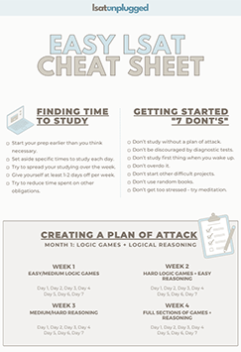– Keep it Short: There’s rarely a reason that an explanation statement should run beyond a double-spaced page, and even that’s too long for most situations. Many applicants feel the need to provide a lot of backstory, but it’s usually not necessary and can be harmful in a number of ways: it can muddy the waters and distract from the key point, or it can take you into areas it would have been better not to make the committee aware of, and it can result in the appearance that you’re trying to justify or explain away whatever negative you’re addressing.
In addition, explanation statements are rarely very interesting and certainly aren’t the piece of the application your readers are most interested in spending time on. In most cases, ½ to 2/3 of a page, double-spaced, should be sufficient to provide the information they need without belaboring the point or digressing.
– One Explanation per Statement: There are exceptions to this “rule”, but generally speaking each explanation statement should address a single issue. The exception is when there is a common cause underlying the two issues.
For example, if you were on academic probation and also were arrested for underage drinking during the same semester, which happened to be the semester during which your mother died suddenly or you suffered a serious injury and were in constant pain, it may make sense to combine those statements.
But if you were on academic probation during your freshman year because you started out in the wrong major and discovered that you didn’t have the math skills to be an engineer but excelled at foreign languages and then were arrested for DUI in your junior year, after you’d switched majors and brought your grades up, those are separate statements for clarity’s sake and for yours: you don’t want to have to write a statement that says “I messed up one thing, then got it together, then messed up something new and unrelated…”
If it does make sense to combine your responses, make sure that doing so complies with the application instructions and that your explanation is properly labeled and associated with any necessary or appropriate documentation.
– Make a Clear, Concise Statement of the Facts: Yes, the purpose of your explanation statement is to provide context and any insight you can offer as to why the admissions committee can expect better of you if you’re admitted to the law school, but don’t skip straight to that. Even if you’ve provided supporting documents that reflect the facts, don’t make your reader put together a puzzle. Begin with a very brief and very specific statement such as “On October 17, 2008, I was cited for “Minor in Possession of Alcohol” on the University of Illinois campus in Champaign-Urbana.” You may have reason to offer further details of the incident, but if so, elaborate after you’ve laid out the key facts.
– Take Responsibility: You’ve undoubtedly heard that it’s important to take responsibility for your actions in an explanation statement, and that’s true. An explanation statement that attempts to minimize or shift the blame is a bit like one of those “sorry you were offended” apologies that aren’t really apologies at all, and the admissions committee won’t be impressed. Many applicants seem to be under the impression that the purpose of this statement is to convince the reader that whatever negative is being discussed really isn’t so bad.
In a few rare circumstances, that may even be true. But essays explaining how you wouldn’t have gotten arrested at all if the cops had been more reasonable or your roommate hadn’t dragged you into a bad situation tend to backfire. In the vast majority of cases, there was some element of bad judgment or a faulty decision involved in creating the situation, and it’s important to recognize that and cop to it. Keep it reasonable, though. Because we’ve seen so many excuse statements, professionals tend to heavily emphasize the need to take responsibility, and this can lead applicants to go too far in the opposite direction.
If you made a bad decision say so, explain the circumstances and move on. Don’t fall on your sword because you got caught drinking three months before your 21st birthday or didn’t take school seriously enough during your first semester. Not only is it not necessary, it’s likely to sound insincere.

